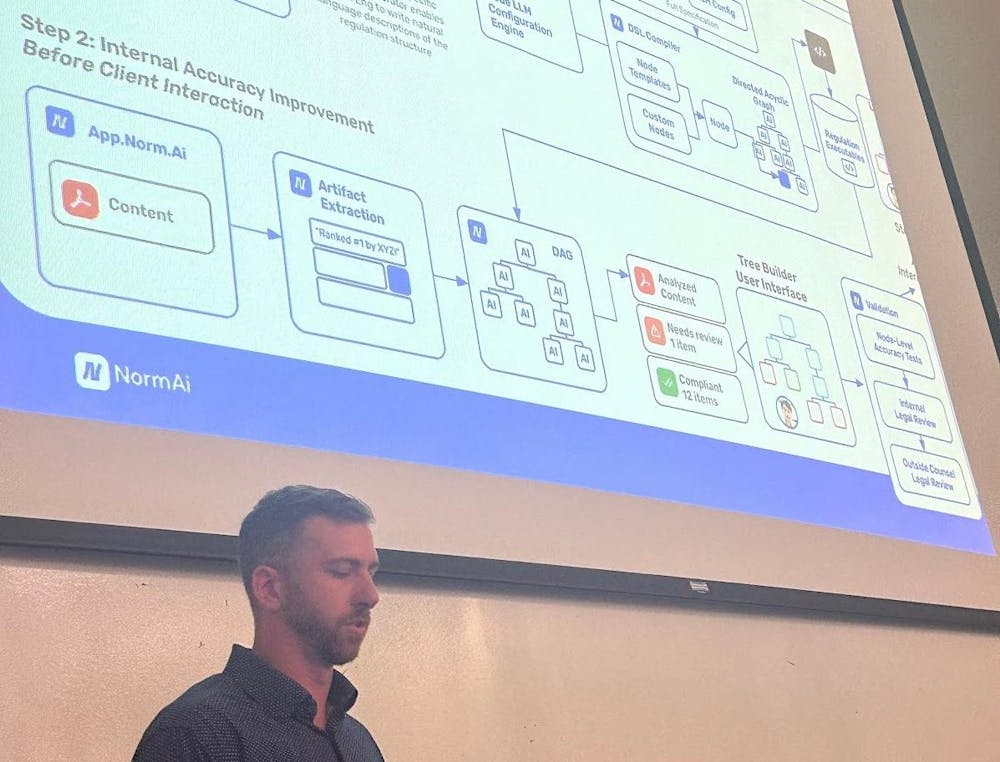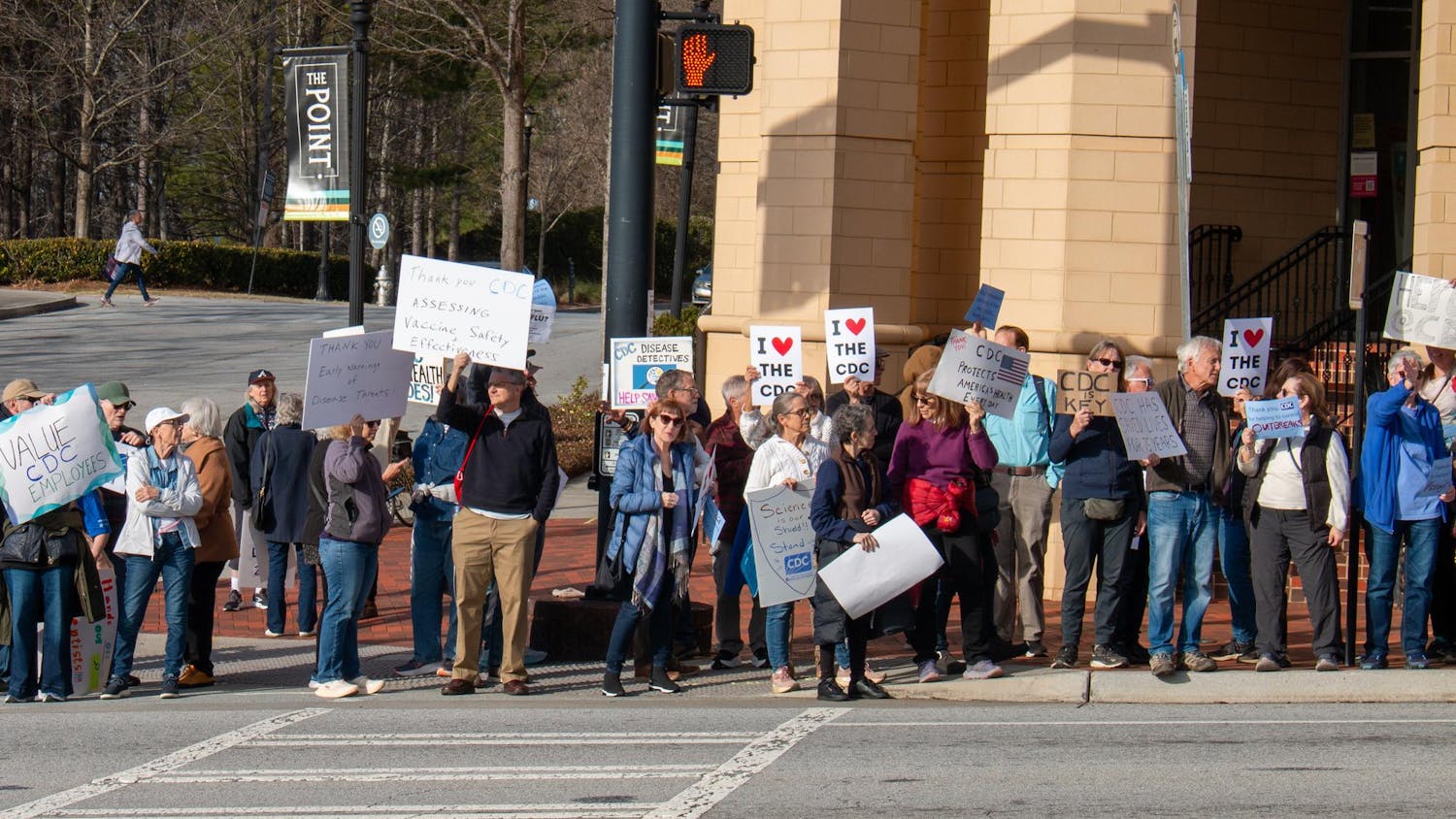Emory University’s AI and Future of Work Program partnered with Norm Ai for the Law and AI Emory Hackathon at the School of Law on Oct. 11. The event highlighted the intersection of law and technology by showing how artificial intelligence (AI) can help with legal compliance.
AI & The Future of Work Fellow Kirin Chang, Asa Griggs Candler Professor of Law and Associate Dean for Projects and Partnerships Ifeoma Ajunwa, and Emory AI and Law Visiting Research Fellow and Norm Ai Head of Engineering Scott Worland moderated the event.
Norm Ai is a company that uses AI-driven programs to make sure businesses are operating by the rules and regulations set by governments or authorities.
Worland discussed how Norm Ai worked with legal experts to build their platform. He spoke about how AI programs can assist companies with legal compliance. By converting written policy into computer code, a company can completely change its workflow, according to Worland.
“In some ways, lawyers are already programmers, right?” Worland said. “But they're using natural language, and so as large language models become more and more powerful, you're going to be able to program computers just using natural language.”
Ajunwa added that AI literacy gives Emory law students a competitive edge. She said that they should prioritize critically analyzing and evaluating AI technologies in a forward-looking way.
“There is an imperative need to have trained legal professionals who are AI literate and therefore who can be involved in crafting the laws and regulations that ensure that AI development and deployment actually benefits all of society,” Ajunwa said.
Later in the event, attendees split into five teams and used an application built by Worland to test the AI program on a sample case. Tasked with turning sections from the Fair Debt Collection Practices Act into prompts, participants used the application to determine if the hypothetical company followed federal rules by inputting prompts like “please check that the debt collector is disclosing that they are attempting to collect a debt.” By the end, participants discerned which process most accurately represented the law by passing the sample input through their systems.
“Today, whether they know it or not, they effectively built software using AI,” Worland said.
Knowledge of AI ranged among the attendees. One attendee, Sarah Page (27L), worked as a software engineer for three years before law school. Her interest in the hackathon stemmed from the intersection between law and technology.
“We’re starting to see a lot more of it in the last few years, or last year or two, with AI and just everything with these burgeoning technologies,” Page said.
Jane Onuoha (26L) was amazed by how much complex knowledge could fit into an hour and a half.
“My biggest takeaway from this event was that even though I don’t know much about AI or the technological engineering space, I can still learn things and apply it to the career I’m going to build in the future,” Onuoha said.

Kimble Schiller (she/her) (26Ox,28C) is from Houston, Texas and is majoring in economics and philosophy, politics and law. Outside of the Wheel, she can be found studying, hiking, writing for fun, or spending time with friends.







